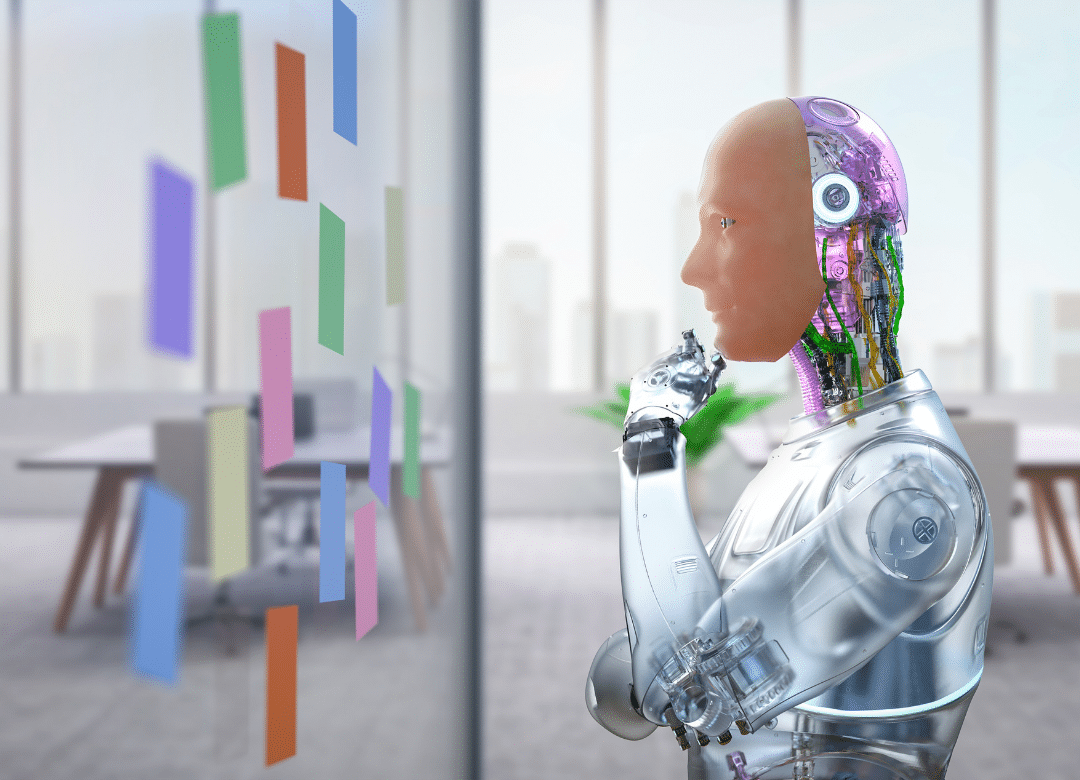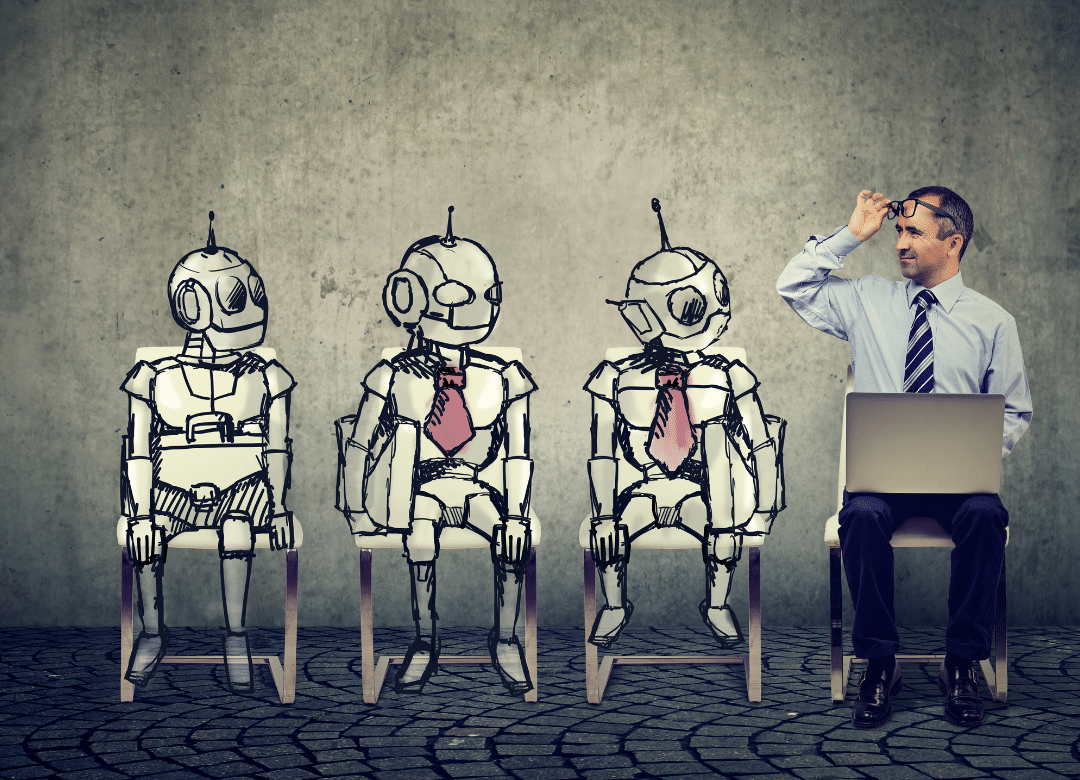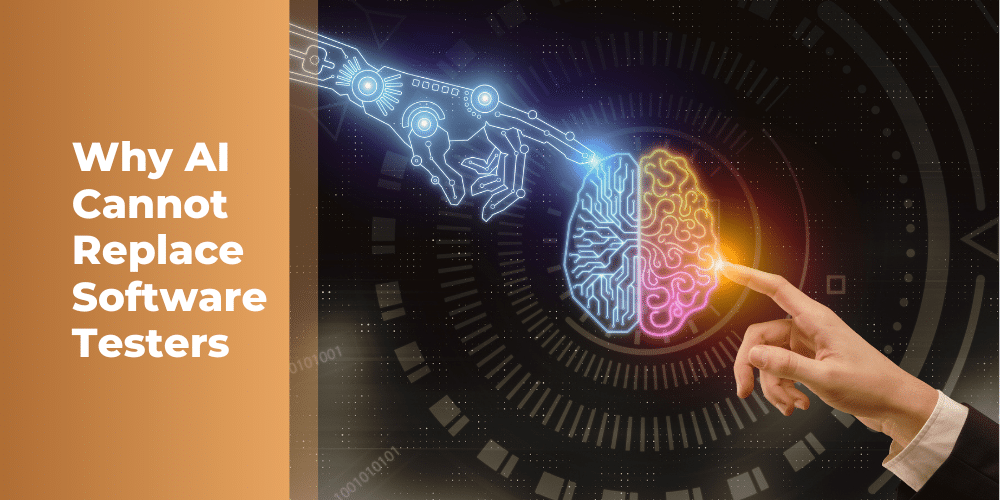As artificial intelligence (AI) continues to advance, its applications are permeating various industries, including software development. AI-powered tools and automation have undoubtedly revolutionised the software testing process, offering increased efficiency, speed and coverage. However, despite these advancements, the role of manual software testers remains indispensable, as they possess unique cognitive abilities, domain expertise and ethical considerations that AI in software testing currently lack.
Here are the specific reasons why AI in software testing cannot fully replace manual software testers:
Table Of Contents
- 1 Cognitive and Decision-Making Abilities: The Human Edge
- 2 Understanding User Experience and Requirements: A Human Perspective
- 3 Creativity and Adaptability: Embracing the Unexpected
- 4 Communication and Collaboration: Bridging the Gap
- 5 Handling Ambiguity and Security Testing: The Human Touch
- 6 Potential Biases and Ethical Considerations: A Human Safeguard
Cognitive and Decision-Making Abilities: The Human Edge
One of the most significant advantages of manual software testers lies in their cognitive and decision-making abilities. Unlike AI systems, which are limited by their training data and algorithms, humans possess critical thinking, creativity and problem-solving skills that are essential for effective software testing.
1. AI in Software Testing Lacks Human Cognitive Skills
While AI in software testing excels at pattern recognition and data processing, it struggles to match the human ability to think critically and creatively and solve complex problems. Software testing often involves evaluating intricate scenarios that require contextual understanding and domain expertise, which AI systems may find challenging.
2. Difficulty Evaluating Complex Scenarios
Software applications are designed to cater to diverse user needs and operate in various environments. Evaluating these complex scenarios requires a deep understanding of the underlying business goals, user expectations and real-world contexts, which manual testers are better equipped to handle.
3. Need for Human Oversight and Ethical Judgment
In complex situations, human oversight and ethical judgment are crucial. AI in software testing may struggle to navigate nuanced or ambiguous scenarios, where manual testers can provide valuable insights and make informed decisions based on their experience and ethical principles.
4. Complex Decision-Making Based on Intuition and Experience
Software testing often involves making decisions in ambiguous or uncertain situations, where intuition, experience and contextual understanding play a vital role. Manual testers can leverage their intuition and experience to make informed decisions, a capability that AI in software testing currently lack.
Understanding User Experience and Requirements: A Human Perspective

Effective software testing requires a deep understanding of user experience and requirements, which manual testers are uniquely positioned to provide.
5. Assessing User Experience from a Subjective Perspective
While AI in software testing can analyse user behaviour data, humans are better equipped to assess and understand the user experience from a subjective perspective. This includes evaluating factors such as usability, aesthetics and emotional responses, which are crucial for creating successful software products.
6. Interpreting Non-Functional Requirements
Non-functional requirements, such as performance, scalability and maintainability, are essential for ensuring software quality. Interpreting and testing these requirements require a deep understanding of business goals and technical considerations, which manual testers can provide through their domain expertise.
7. Understanding Cultural and Contextual Nuances
Software products are often designed for global markets and understanding cultural and contextual nuances is crucial for localised testing. Manual testers can bring their diverse perspectives and experiences to identify potential issues or opportunities that AI in software testing may overlook.
Creativity and Adaptability: Embracing the Unexpected
Software testing is not a static process; it requires creativity and adaptability to address ever-changing requirements and user behaviours.
8. Creativity in Devising Test Scenarios
Manual testers excel at devising creative test scenarios based on real-world situations, unexpected user behaviour and novel use cases. This creativity is essential for identifying edge cases and potential issues that may not be covered by traditional testing approaches.
9. Imagination and Creativity to Break the Application
Effective software testing often involves “breaking” the application to uncover vulnerabilities and defects. Manual testers can leverage their imagination and creativity to transform requirements into tests that can stress the application in unexpected ways, revealing potential issues before release.
10. Adapting to Rapidly Changing Software Environments
The software development landscape is constantly evolving, with new technologies, frameworks and methodologies emerging regularly. Manual testers can adapt to these changes more dynamically than AI models, which are dependent on their training data and may struggle to keep pace with rapid changes.
11. Agility in Evolving Software Projects
Software projects can evolve quickly, with requirements and priorities shifting based on stakeholder feedback or market demands. Manual testers can adapt to these changes more effectively, adjusting their testing strategies and approaches as needed, while AI systems may struggle to keep up with the dynamic nature of software development.
Communication and Collaboration: Bridging the Gap
Effective software testing requires seamless communication and collaboration between testers, developers and stakeholders. Manual testers excel in this area, providing valuable insights and feedback throughout the development process.
12. Effective Communication and Collaboration
Manual testers can effectively communicate and collaborate with development teams and stakeholders, sharing their findings, insights and recommendations. This collaboration is crucial for identifying and resolving issues, as well as ensuring that the software meets the desired quality standards and user expectations.
Handling Ambiguity and Security Testing: The Human Touch
Software testing often involves dealing with ambiguous, incomplete, or contradictory data, as well as addressing security vulnerabilities, where human expertise is invaluable.
13. Handling Ambiguous, Incomplete, or Contradictory Data
In real-world scenarios, software testers may encounter ambiguous, incomplete, or contradictory data. Manual testers can leverage their experience and judgment to make informed decisions about software quality, even in the face of such challenges.
14. Security Testing and Ethical Hacking
When it comes to security testing, ethical hackers often employ creative and unstructured approaches to identify vulnerabilities. While AI in software testing can assist in automating certain aspects of security testing, the human ability to think like an attacker and devise novel attack vectors is crucial for comprehensive security testing.
Potential Biases and Ethical Considerations: A Human Safeguard

As AI systems become more prevalent in software testing, it is essential to address potential biases and ethical considerations, where human oversight is crucial.
15. Identifying and Mitigating Potential Biases
AI in software testing can inherit biases present in their training data or design, which can lead to unfair or discriminatory outcomes. Manual testers can identify and mitigate these biases, ensuring that the software is fair, inclusive and free from unintended discrimination.
16. Ethical Considerations Involving Privacy, Compliance and Broader Implications
Software development often involves ethical considerations related to privacy, compliance and broader societal implications. Manual testers can provide valuable insights and judgment in these areas, ensuring that the software adheres to ethical principles and regulatory requirements.
As the software industry continues to evolve, the collaboration between manual testers and AI systems will become increasingly important. By leveraging the strengths of both, organisations can achieve higher software quality, better user experiences and more robust and secure applications.
While AI in software testing can automate and enhance various aspects of software testing, the cognitive abilities, domain expertise, ethical judgment, creativity, adaptability and communication skills of manual testers remain essential for comprehensive and effective testing. The future of software testing lies in the harmonious integration of human expertise and AI capabilities, ensuring that software products meet the highest standards of quality, usability and security.
Related Articles
Mastering Testability: Discover the 7 Key Factors Affecting Your Testing Success
Become A Quality Assurance Tester: 5 Must-Know Tips
6 Benefits of Well-Documented Software Requirements for Successful Projects

